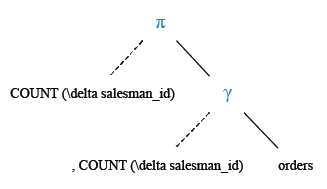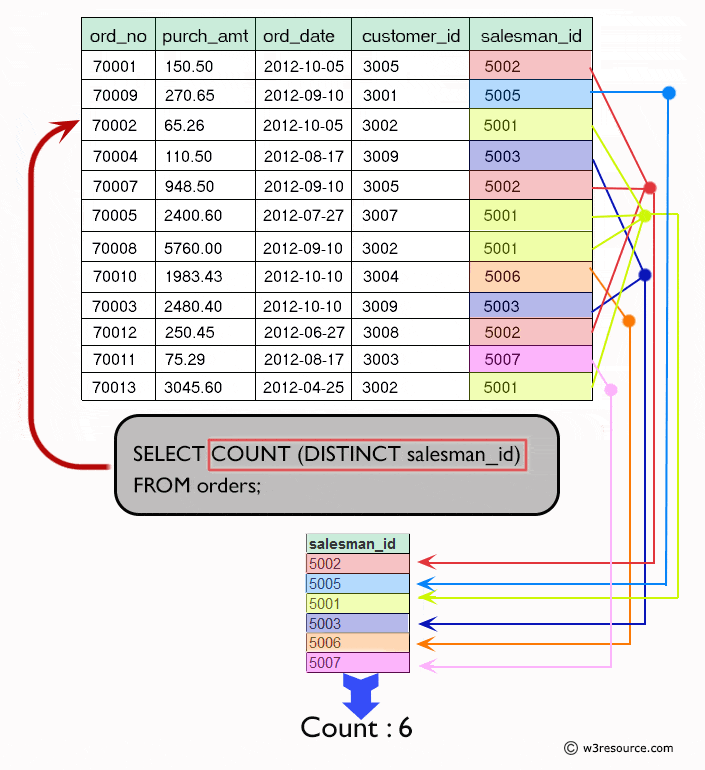SQL Exercises: Find the number of salesmen for each customer
3. Count the Number of Unique Salespeople
From the following table, write a SQL query that counts the number of unique salespeople. Return number of salespeople.
Sample table: orders
ord_no purch_amt ord_date customer_id salesman_id ---------- ---------- ---------- ----------- ----------- 70001 150.5 2012-10-05 3005 5002 70009 270.65 2012-09-10 3001 5005 70002 65.26 2012-10-05 3002 5001 70004 110.5 2012-08-17 3009 5003 70007 948.5 2012-09-10 3005 5002 70005 2400.6 2012-07-27 3007 5001 70008 5760 2012-09-10 3002 5001 70010 1983.43 2012-10-10 3004 5006 70003 2480.4 2012-10-10 3009 5003 70012 250.45 2012-06-27 3008 5002 70011 75.29 2012-08-17 3003 5007 70013 3045.6 2012-04-25 3002 5001
Sample Solution:
-- This query counts the number of distinct 'salesman_id' values.
SELECT COUNT(DISTINCT salesman_id)
-- Specifies the table from which to retrieve the data (in this case, 'orders').
FROM orders;
Output of the Query:
count 6
Code Explanation:
The given SQL query that retrieve the number of unique values in the "salesman_id" column from the 'orders' table. The "SELECT COUNT (DISTINCT salesman_id)" statement specifies that the number of unique values in the "salesman_id" column should be counted.
By using the keyword "DISTINCT", it is ensured that only unique values will be counted and duplicate values will not be added to the final result in any way.
The result of this query will be a single value that represents the number of unique values in the "salesman_id" column in the 'orders' table.
Relational Algebra Expression:
Relational Algebra Tree:
Explanation:
visual presentation:
Go to:
PREV : Calculate Average Purchase Amount of All Orders.
NEXT : Count the Number of Customers.
Practice Online
For more Practice: Solve these Related Problems:
- Write a SQL query to count the number of unique salespeople who have made sales in the city 'New York'.
- Write a SQL query to count the number of unique salespeople who have made sales to customer ID 3009.
- Write a SQL query to count the number of unique salespeople who have made sales in the year 2012.
- Write a SQL query to count the number of unique salespeople who have made sales with a purchase amount greater than 2000.
Have another way to solve this solution? Contribute your code (and comments) through Disqus.
What is the difficulty level of this exercise?
Test your Programming skills with w3resource's quiz.




